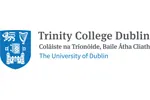We're moving! This site will be relocating to goingto.university in 2026. Please update your bookmarks to the new address.


| The award | How you will study | Study duration | Course start | Domestic course fees | International course fees |
|---|---|---|---|---|---|
| MPhil | Full-time | 1 year | - | - | - |
Contact Trinity College Dublin to find course entry requirements.
Below are some suggested courses at other providers that you may also be interested in:
Assessment, Measurement and Evaluation Master Degree
Faculty of Educational Sciences, University of Oslo
Find out moreIf you do not meet the entry requirements for this course then consider one of these postgraduate preparation courses from another institution:
Graduate Diploma of Engineering (Safety, Risk and Reliability)
Engineering Institute of Technology
Find out moreGraduate Diploma of Research Methods [Tropical Environments and Societies]
James Cook University (JCU)
Find out moreThere are 179 other courses listed from Trinity College Dublin. A selection of these are displayed below:
Join the StudyLink email list and never miss a chance to turn your study abroad dreams into reality!
